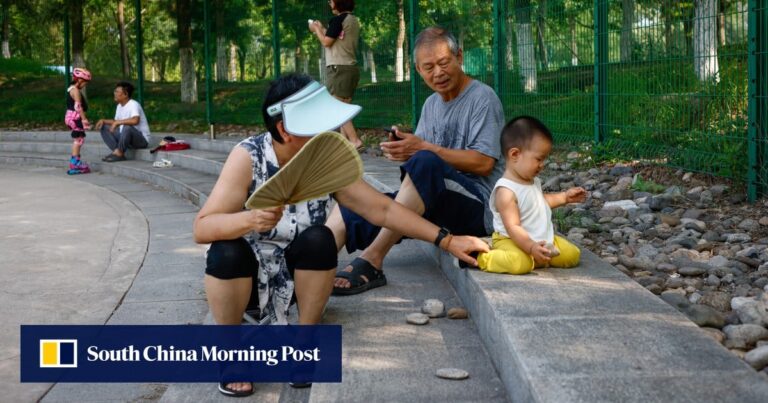A birth rate of 2.1 is known as the replacement rate and is generally considered necessary to ensure a roughly stable population.
Shanghai was the first city in mainland China to become an ageing society in 2017, with the proportion of residents aged 65 or over exceeding 14 percent. But the figure is well below that of South Korea, which had the world’s lowest birth rate last year, at 0.72.
Even if birth rates rise, there will be fewer babies because there are fewer women of childbearing age.
China’s total fertility rate last year was not released by authorities but analysts estimate it was around 1.
The United Nations Population Fund said in April that Hong Kong’s fertility rate is estimated at 0.8.
The problem of declining birth rates will accelerate China’s population ageing, resulting in higher social dependency ratios, straining the social security system, increasing government debt and undermining social innovation and entrepreneurship in an already slowing economy, according to a report released Tuesday by Beijing’s Youhe Population Research Institute.
“This is the consequence we must bear. [for the decades of family planning policy]” said Hu Zhan, a professor of demography at Fudan University.
“The problem is that even if the birth rate rises, there will still be fewer babies born because the one-child policy means there are fewer women of child-bearing age.”
The sharp drop in newborns is already affecting kindergartens across China, with the number of kindergarten teachers falling by more than 170,000 last year, the first decline since 2010, according to a report by the Sanglory Educational Research Institute in Beijing.
“The decline in the number of students was so rapid that it put the early childhood education industry into a roller coaster ride,” said Zhang Shuli, founder of the institute.
He predicted that between 2026 and 2030 the number of children attending kindergarten will be halved compared to 2020.
Society needs to be more tolerant of mothers and children.
But the policy shift does not seem to have helped, as rising costs, changing lifestyles and a feminist awakening mean more people are delaying marriage and remaining hesitant to have children.
China also needs a more friendly social environment for families with children as traditional culture that once glorified motherhood and stressed love for children is declining, Hu added.
“The relaxation of fertility policies and subsequent incentives is not going to make a big difference to the absolute number of births,” he said.
“The key is that society needs to be more tolerant of mothers and children, so China’s demographic change can have a soft landing.”

